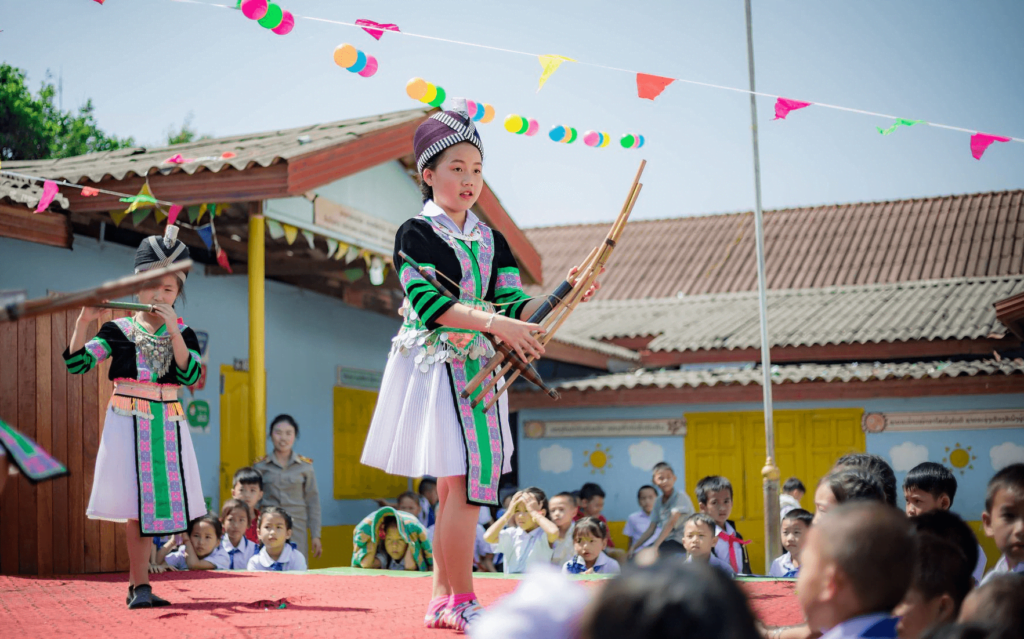
Ending Rape Culture in the Hmong Community
Back in 2008 when I was still mentoring youth, I came across a strange situation. I had a tough time getting my Hmong middle school boys to talk, so I would give out fun surveys and read them off just so that the boys could hear how each other think about life and compare notes. The boys would fill out their surveys privately to give them time to think, and I would collect them and anonymously read the surveys aloud when everyone was finished. On this particular day, I had put down as one of the questions “When I like a girl, I do this to get her attention,” thinking it would be interesting to hear how they think about girls and how they’re starting to form relationships with women. When I read their responses out loud, a strange thing happened. Four boys independently answered the question with “Rape her.” Whenever I read that response, the boys would laugh, thinking it was a hilarious joke. Before circle ended that day, I said that we were to change our curriculum for the next month to focus on relationships.
Fast forward to now, it seems every six months or so, a new group of young Hmong men gang rape of one or more girls and then get arrested and put in prison for decades. The strange part about all of this is that nobody bats an eye. Nobody raises a voice, nobody seems to care. The young men are thugs, the young women are probably doing something that puts them in that situation, and in the end no one does or even says anything. It has become normalized in our community to accept rape, even gang rape, despite the toll it takes on our young people. In having worked on this problem first hand, I have discovered there are serious issues that we need to confront if we’re ever going to take on the issue of rape.
1. We don’t talk about sex
In our culture, there is a huge elephant that sits in the living room of every household, especially the homes with teenagers. The elephant, the unspoken issue, is the concept of sex. Parents tiptoe around the issue, completely avoiding mentioning, articulating, or acknowledging it. When I was a teen, my dad used to warn me with an angry face and a loud voice, “Don’t get trapped by girls.” I had no idea what he was talking about. Looking back, I think he meant don’t get a girl pregnant and have to marry her. But this is exactly what happens in a culture and community that isn’t comfortable with discussing sex. For boys who are growing up and want to learn about and understand relationships, there simply is no one to talk to except their peers. Too often, the masculinity of immature men gets mixed up into the conversation and you get the situation I had to deal with above, men who mix up relationships and sex with violence and control rather than understand it as a process of relating. Although the boys I was mentoring were a rowdy bunch, when we talked about sex and relationships, all of a sudden you could hear a pin drop in the classroom. The boys were really paying attention. I was lucky enough to catch them at a time where they were really open to learning about relationships and sex and were on the path of making serious mistakes.
2. We institutionalize rape and the coercion of women as normal
So what happens in a community that can’t deal with a basic fact of life like sex? From what I’ve seen, we pretty much put it on the systems we have in place to clean up the mess we failed at preventing. Because we leave youth to figure out sex on their own, when they find themselves in situations such as pregnancy or rape, the clan system, the parents, basically everyone involved, simply focuses on the proper procedure to take care of it. We don’t treat the youth as people, but as a social situation that has to be remedied. We force the youth to get married. We send rapists to prison. Basically we punish them for the rest of their lives. But this kind of mentality is exactly how rape culture works. We don’t take any preventative steps, we silence victims, dehumanize perpetrators as criminals (or make them marry the girl they raped or impregnated), and we don’t talk about it afterwards to understand what factors contributed to the situation. In this way, we have made it a norm for rape to occur. Rape is a preventable issue. If we focus on the problem after it happens instead of changing our culture to prevent it, we are by our very actions accepting it as a normal part of society that can’t be helped. We need to have sympathy for all the people in these situations and reevaluate what we’re doing or not doing that contribute to youth making these kinds of mistakes.
On the other hand, we have a long standing culture of allowing men to kidnap women or perform other forms of forcing themselves on women. I’ve had several female friends who were forced into marriage (some were able to avoid getting married with the help of their families) even after getting they had gotten degrees from prestigious colleges. Too many think it normal for men to force women into relationships they don’t want to be in because it’s part of our culture. This violent cultural mentality is often translated to sexual situations as well, where men prioritize their wants over the rights of women. Our cultural attitude towards women needs to change if we are to teach our young men how to respect and value the thoughts, emotions, and individuality of women.
3. We need to support young men to develop genuine relationships with women
Just as with domestic violence, rape is just a symptom of the bigger issue of how our culture makes it hard for relationships between men and women. When I started probing into the thoughts and experiences of the boys I was working with in my circle, I began to realize that boys simply could not see the world from the perspective of girls. I asked them the following week, “How many of you have seen a pretty girl and just started following her around?” About 3 quarters of the boys raised their hands. I asked them, “What do you think the girls feel like or think about when they are followed by you?” They couldn’t answer. Of course she wouldn’t feel comfortable, but they weren’t even thinking about the situation from her point of view. They only fixated on the fact that they were attracted to her and wanted her to be attracted to them. Even now I ask adult Hmong men what they think makes them attractive to women and they think it’s the same things that they find attractive about women, like physical attributes, or they have some stereotypical ideas like money and status. This confusion is partly what creates the anger and frustration of men. Men don’t have any idea of the boundaries and values that women have regarding relationships. When men get frustrated with women, they default to cultural values such as forcing the relationship to move forward through violence, aggression, or manipulation. It not only oppresses the woman they’re with, but it also creates a lack of safety which contributes to more relationship problems in the future.
So how do we end rape culture in the Hmong community? It’s a hard issue to wrestle with. But there are steps that can be taken to own up to the responsibilities we have as adults in the community. We need to talk about sex and not leave it up to youth to figure it out on their own. That alone would help tremendously to stem the problem. We need to be willing to acknowledge that rape is an issue in our community. We need to end practices like condoning women to be kidnapped for marriage. And we need to support young men in how they relate to women. Only when we start engaging in the discussion of rape and gender relationships as well as embrace the fact that our culture and our actions contribute to the problems in our community, will we be able to begin preventing these kinds of problems in the future.









Responses